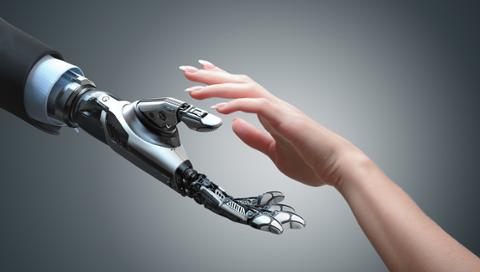Could you have a future job as a “prompt engineer”?
The rise of A.I.-powered chatbots such as ChatGPT has created a new category of technology job: prompt engineer. And according to Bloomberg and Business Insider, some of these positions are proving quite lucrative: if you can build prompts that persuade a chatbot to generate useful text or code, you could earn a solid six-figure salary.
Sounds great, right? Best of all, you don’t necessarily need to become a coding master to unlock a prompt engineer career (although knowledge of coding never hurts). Depending on the company, the job’s requirements could include everything from designing custom prompts for ChatGPT to integrating prompts into an existing application; listening to user feedback is a must, as it’ll allow you to refine future prompts.
The job’s specific requirements vary from company to company. Experience with chatbot integration and development seems universally important, along with the ability to collaborate with stakeholders throughout an organization, including senior management and other developers. Creativity and problem-solving are always vital for anyone trying to do clever things with a new (and rapidly evolving) technology.
“It's not a science… It’s ‘let’s poke the bear in different ways and see how it roars back,’” Shane Steinert-Threlkeld, a linguistics professor at the University of Washington, recently told The Washington Post.
Given the rapid pace of A.I. evolution, it’s also an open question how long the job will “last.” For example, Ethan Mollick, a Wharton professor who focuses on startups and A.I., recently Tweeted: “I have a strong suspicion that ‘prompt engineering’ is not going to be a big deal in the long-term & prompt engineer is not the job of the future… AI gets easier. You can already see in Midjourney how basic prompts went from complex in v3 to easy in v4. Same with ChatGPT to Bing.”
But any number of tech-related jobs will likely evolve over the coming years. For example, chatbots’ increasing ability to code could fundamentally change the nature of many software developer and engineer positions. “The good news is that worker displacement from automation has historically been offset by creation of new jobs, and the emergence of new occupations following technological innovations accounts for the vast majority of long-run employment growth,” mentioned a recent report by Goldman Sachs. “The combination of significant labor cost savings, new job creation, and higher productivity for non-displaced workers raises the possibility of a productivity boom that raises economic growth substantially, although the timing of such a boom is hard to predict.”
As with so much in tech, flexibility is key. A.I. and chatbots are going to open up lots of opportunities—so long as you stay on top of the technology.



